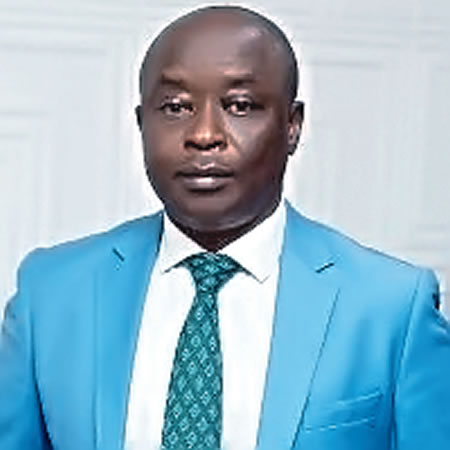Dr Henry Adebowale Adimula is the principal and chief executive of the Petroleum Training Institute (PTI), Effurun, Uvwie, Delta State. He speaks with EBENEZER ADUROKIYA on sundry issues affecting the petroleum industry.
WHAT is the role of your institution regarding the recently signed Petroleum Industry Act (PIA)?
If we have more drilling taking place, you will need PTI because PTI is meant to develop the people that drill in this country. We have the rig. Ours is to produce the capacity to drive the industry. With more investments and more stimuli in the oil and gas industry, the PTI will become far more relevant because our products are in great demand. Gas flaring, which constitutes an environmental challenge, is part of the things that are happening today in our industry. The PTI is also to engender research development. We create teams that study the effect of all these things and proffer solutions. Some staff members of the institute have won several awards for developing solutions to some remediation problems. So, PTI is very active in all these things.
With the coming of the PIA and the host community fund, three per cent, that fund is going to be used to develop the host communities and PTI believes that one of the best ways to develop a community is to develop capacity; to train. That is an area PTI is going to be very active and we are going to play a big role. So, we have prepared ourselves to maximise the effect of the coming of the PIA. The PIA will also help promote the adoption of gas. There is a fund created for that. That means we will explore and use more of our gas resources. We have a gas department already and we want to create a gas center where the skills and technology required to properly train and develop gas use in this country will be developed. So, for us at PTI, it is a very exciting time because we see a lot of opportunities in the PIA and we are ready to maximise that.
The world is going through gas crisis and Nigeria is not exempted as there is an increase in the price of gas. What immediate steps do you think the government should take to solve this problem?
We have to first understand the issues driving the price of gas globally. One of the issues is the supply chain. The major producers are not able to get what they are producing to the consumers. When there is disparity in demand and supply, prices shoot up. It is a global problem. Here in Nigeria, an average man cannot afford the price of cooking gas. We do have gas in Nigeria. We even have far more gas than crude oil but we do not produce in it in Nigeria. That is a sad reality. We have this resource in abundance but we still depend on foreign suppliers to bring it to us. So, if the price is high internationally, it does affect us.
Another major factor is the value of the naira. As the value of the naira depreciates, costs go up. There is no quick fix in this case. We have to plan for the future. We have to find out how to better maximise our resources. We should be able to refine and produce LPG [liquefied petroleum gas] to be able to power our industry. Dangote Refinery and some others are coming on board. Some of them produce LPG but the product is far shorter in supply than what we need for consumption. What we can do is to further increase local refining capacity. It will require a lot of investments and political will to push it through.
Globally, there are problems with crude oil production. What are the causes of these problems and what do you think is the solution?
Our goal is to have reach three million barrels per day. Our quota is below that and we are not even able to beat what our quota is today for a number of reasons. We have not been able to have the requisite investment in the oil and gas industry. Without this investment, we can’t discover and drill new wells. And the wells we have presently are aging and with those, we can’t produce optimally. The PIA investment should come into the industry and we should have more production. As regards the crisis in the oil-producing communities, anytime there is pipeline vandalism, it affects our production. With the PIA and the communities owning these projects, the problem of vandalism should be something we will be coming out of. When we achieve that, we should be able to generate more.
How is the institute faring in terms of funding?
About funding for the institute, our industry needs a high level of technology because of the size of our institute. This causes the institute to need a lot of funds to be able to invest in the latest technology which is changing every time. Today, the world is talking about energy transmission and that also is a lot of technology-driven space. So, how do we get there? It is by having a lot of support from the government. I love that the government is carrying a lot of burden and we have to spread what is available to the entire country. We won’t complain too much about the issue of funding. We will also say that we have to be creative in generating funds for the institute. So, the institute is working to maximise the little that the government is giving to us and using the little that government has given us to create further wealth. We have an entrepreneurship centre where we train people in different skills. We also have the Fire Academy where we train firefighters across the country.
We have the consult that is engaging in business and we can actually do some businesses, and a driving school is coming up. We have a partnership with a company. This will make our training accessible to anyone on the internet anywhere in the world and will also generate income for us.
With the sustained development in key areas like electricity and solar, what do you think the future holds for the petroleum industry?
The world had set high targets of carbon neutral energy sources, which would mean that if the world has its way by 2050, anything hydrocarbons, crude oil and the like would not be the primary choice source of energy. But that will have a lot of implications for Nigeria that depends a lot on natural resources.
S FROM NIGERIAN TRIBUNE
We Have Not Had Water Supply In Months ― Abeokuta Residents
In spite of the huge investment in the water sector by the government and international organisations, water scarcity has grown to become a perennial nightmare for residents of Abeokuta, the Ogun State capital. This report x-rays the lives and experiences of residents in getting clean, potable and affordable water amidst the surge of COVID-19 cases in the state…
Selfies, video calls and Chinese documentaries: The things you’ll meet onboard Lagos-Ibadan train
The Lagos-Ibadan railway was inaugurated recently for a full paid operation by the Nigerian Railway Corporation after about a year of free test-run. Our reporter joined the train to and fro Lagos from Ibadan and tells his experience in this report…






